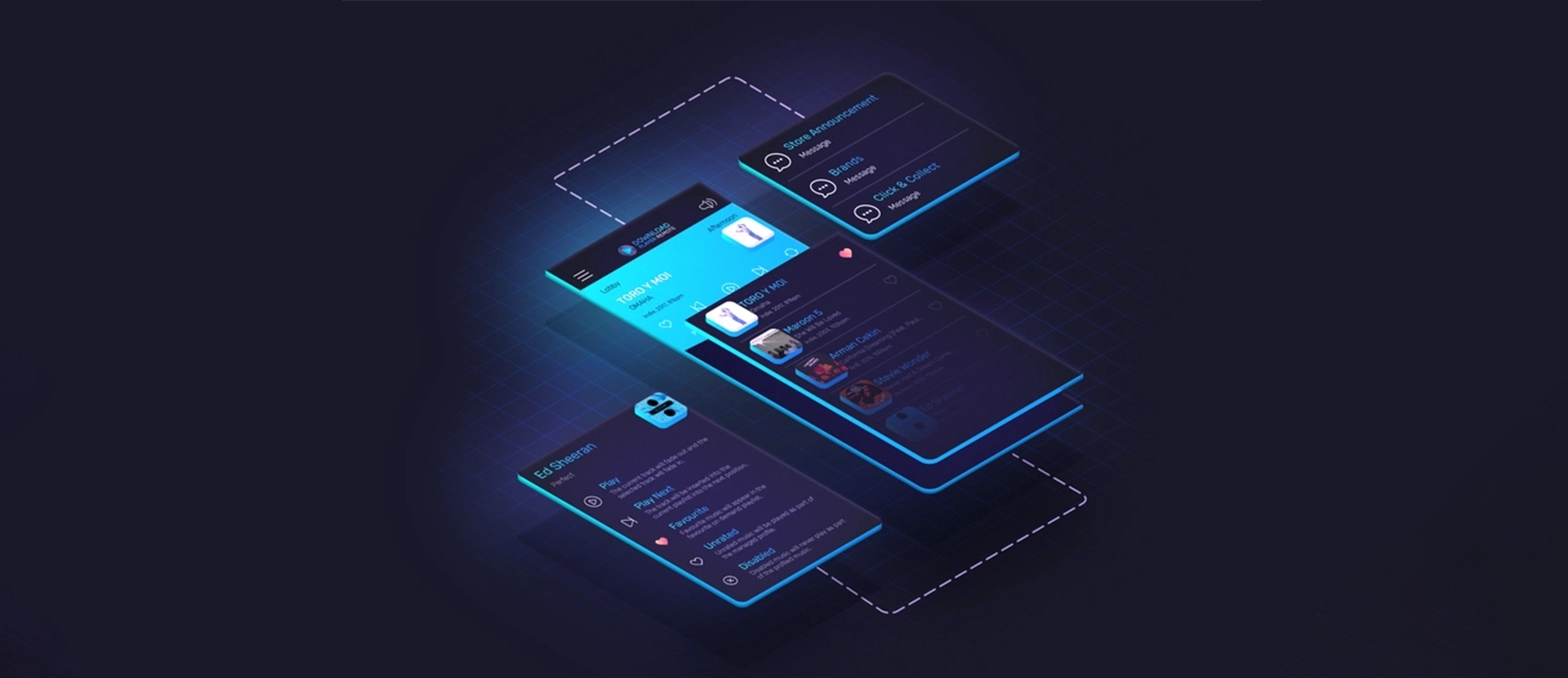The need for blockchain technology is growing in every industry. Whether it is the healthcare industry or education, blockchain technology has become one of the most integral parts of the respective industries. But, every industry has one thing in common and that is recruitment. Blockchain in recruitment has completely transformed the process and made things a lot more hassle-free for all industries. This is why we are here to help you understand all the aspects related to blockchain in recruitment and how things can be improved using the respective technology.
We are going to discuss more about blockchain use cases in recruiting and its benefits and challenges in detail to assist you get complete clarity of the process. In this way you will have complete knowledge in terms of blockchain for recruitment and it will make it easy for you to make the right decision.
Table of Contents
Statistics About Blockchain for Recruitment
Before moving ahead with the use cases, it is important for us to look at the numbers of the blockchain applications in recruitment process. The stats below will make things easier for you to proceed ahead. Read on.
The global market for blockchain in recruitment industry is projected to reach USD 1.5 billion by 2026.
85% of employers have caught candidates lying on their resumes. Blockchain can help mitigate this issue by providing verifiable credentials.
Implementing blockchain for background checks can reduce verification time by up to 75%, streamlining the hiring process significantly.
Companies using blockchain for recruitment processes can save up to 30% on administrative costs.
65% of job seekers would be more likely to apply for a job if they knew their information was securely stored on a blockchain.
Blockchain can enhance skill verification processes, with up to 70% of employers stating they would trust blockchain-verified credentials over traditional methods.
So, these are the numbers that you need to check with to understand the impact of blockchain for recruitment industry. These aspects show how things are going to improve and make things seamless in every aspect. Now to make things more convincing, below we are going to discuss the use cases that can make things easy for you to understand. Read on.
Top Use Cases of Blockchain in Recruitment
Blockchain technology offers numerous applications within the recruitment sector that can address key challenges while driving innovation and efficiency. From simplifying background verification to enhancing customer data security, these blockchain use cases in recruiting demonstrate how blockchain can reshape traditional practices in recruiting. Below are several prominent use cases of blockchain for recruitment, showcasing their practical applications through real-world case studies.
Blockchain Simplifies Background Verification and Reference Checks
By utilizing blockchain for background checks, employers can access a consolidated record of a candidate’s information quickly and efficiently. This not only speeds up the hiring process but also enhances accuracy by reducing the risk of human error or data manipulation.
Reducing Hiring Costs with Blockchain
Implementing blockchain technology in recruitment can lead to significant cost reductions across various operational aspects. Traditional hiring methods often involve multiple intermediaries, such as background check services or recruitment agencies, that add layers of complexity and expense to the process. By leveraging blockchain applications in recruiting, organizations can automate many administrative tasks through smart contracts, reducing reliance on third-party services and minimizing overhead costs associated with manual processes.
Decentralized Talent Marketplaces: The Future of Job Searching
Decentralized talent marketplaces use blockchain to connect job seekers directly with employers, eliminating intermediaries and making hiring more efficient. These platforms allow candidates to showcase their skills through verified digital profiles, enabling employers to access tailored talent pools efficiently. Smart contracts automate payments upon successful placements, ensuring timely compensation and preventing disputes. This approach enhances relationships among parties involved by maintaining transparency and trust throughout the hiring process. For example, Upwork’s integration with Ethereum-based solutions facilitates secure connections between freelancers and clients seeking specific talents.
Protecting Candidate Data Privacy with Blockchain
Blockchain technology protects sensitive candidate information by providing robust security measures against unauthorized access. By decentralizing data storage, blockchain ensures there is no single point of failure, preventing hacks and breaches. This approach maintains the integrity of operations by allowing authorized parties to access necessary insights efficiently. Everledger is a notable example, utilizing blockchain solutions to enhance security across various sectors, including recruitment, ensuring high compliance standards.
Blockchain Prevents Fraudulent Applications
Blockchain helps mitigate the risk of fraudulent job applications by providing verifiable records of educational qualifications and work history stored securely on immutable ledgers. This prevents manipulation and enhances overall integrity by allowing stakeholders to make informed decisions based on accurate data. HireRight is an example that leverages blockchain to streamline verification processes, ensuring authenticity throughout the hiring process.
Blockchain-Based Skill Verification and Certification Tracking
Blockchain enables efficient verification of skills and certifications by storing qualifications securely on distributed ledgers. This ensures authenticity and fosters trust among employers, knowing they are hiring individuals with the necessary competencies. IBM’s Skill Wallet is a notable implementation, allowing users to manage and track certifications earned across platforms securely, maintaining high compliance standards.
Using Blockchain to Build Trust in the Hiring Process
Blockchain builds trust in hiring processes by providing transparent systems where all transactions are recorded immutably, ensuring accountability and fostering confidence among stakeholders. WorkChain is an example that utilizes blockchain to facilitate secure verifications and transactions, maintaining transparency and driving success among stakeholders involved.
Blockchain Enhances Fairness and Reduces Bias in Hiring
Blockchain enhances fairness in hiring by ensuring objective evaluations based on verified skills and experiences recorded securely on distributed ledgers. This prevents biases encountered in traditional methods, promoting diversity and inclusion. Pymetrics is a notable example, leveraging neuroscience-based assessments alongside blockchain to ensure unbiased evaluations and promote diversity.
Secure and Tamper-Proof Resumes
Blockchain ensures resumes are stored securely on immutable ledgers, preventing tampering and misrepresentation. This allows employers to confirm the authenticity of applicants’ claims, fostering trust among stakeholders. CV Ledger is an example that enables users to create tamper-proof resumes using blockchain, maintaining high compliance standards throughout the hiring process.
Smart Contracts for Employment Agreements
Smart contracts streamline employment agreements effectively automating various tasks such as contract management onboarding ensuring compliance predefined conditions met prevents disputes arising misunderstandings encountered traditionally enhancing overall relationships maintained positively among parties involved consistently throughout engagements conducted regularly today!
Tokenized Rewards for Referrals
Tokenized rewards incentivize employee referrals effectively promoting engagement retention rates higher than ever before achieved consistently over time! By leveraging distributed ledger technology, organizations reward employees tokens redeemable goods services fostering community spirit driving success achieved collectively among stakeholders involved consistently throughout engagements conducted regularly today!
Cross-Border Recruitment and Compliance
Cross-border recruitment involves managing complex compliance issues across different countries. By integrating blockchain and AI, companies can access real-time data from various sources, ensuring compliance with local regulations. This integration helps streamline the hiring process, reducing legal risks and improving efficiency. Blockchain ensures the integrity of candidate data, while AI analyzes compliance requirements, making it easier to manage international recruitment processes.
Onboarding and Compliance Automation
Automating onboarding and compliance processes using blockchain and AI significantly reduces administrative burdens. Blockchain securely stores and verifies candidate credentials, while AI automates compliance checks. This integration ensures that all legal requirements are met quickly and accurately, allowing new hires to start work sooner.
Faster Freelance and Contract Payment Processes
Blockchain and AI can expedite freelance and contract payments by automating payment processes. Smart contracts on blockchain platforms ensure timely payments once work is completed, while AI verifies the fulfillment of contract terms. This integration reduces payment delays and increases trust between freelancers and employers.
Efficient Workforce Data Management
Blockchain technology, combined with AI, enhances workforce data management by securely storing and managing employee data. Blockchain ensures data integrity, while AI analyzes and provides insights from this data. This integration helps HR teams make informed decisions and manage workforce resources more effectively.
Credential Validation in Real-Time
Real-time credential validation is crucial for ensuring the authenticity of candidate qualifications. Blockchain stores verified credentials securely, allowing instant validation. AI can analyze these credentials to match candidates with job requirements more accurately. This integration reduces hiring errors and speeds up the recruitment process.
Internal Hiring and Mobility Tracking
Internal hiring and mobility tracking can be optimized using blockchain and AI. Blockchain securely records employee skills and experience, while AI analyzes this data to identify internal candidates for promotions or transfers. This integration improves internal mobility and reduces external recruitment costs.
Improved Candidate Experience with Self-Sovereign Identity (SSI)
Self-Sovereign Identity (SSI) allows candidates to control their personal data securely using blockchain. AI can help personalize the hiring experience by analyzing candidate preferences and skills stored on blockchain. This integration enhances candidate satisfaction and trust in the recruitment process.
Transparent and Auditable Hiring Processes
Blockchain ensures transparency and auditability in hiring processes by creating an immutable record of all interactions. AI can analyze this data to identify biases and improve fairness in hiring decisions. This integration increases trust in the recruitment process and reduces legal risks associated with discrimination.
Benefits of Blockchain in Recruitment Industry
Integrating blockchain technology into the recruitment sector presents numerous advantages that enhance operational efficiency while improving customer experiences significantly overall! Here are some key benefits:
1. Enhanced Security
Blockchain technology provides a secure way to store and manage sensitive data, such as candidate information and employment records. By using blockchain, data is encrypted and stored across multiple nodes, making it difficult for unauthorized parties to access or alter it. This ensures that all data remains safe and tamper-proof, reducing the risk of data breaches and fraud. The integration of AI enhances this security by analyzing data for potential threats, ensuring that all information is protected effectively.
2. Improved Transparency
Blockchain offers transparency in the recruitment process by providing a clear and accessible record of all transactions and data usage. This allows both employers and candidates to verify the authenticity of information easily, fostering trust in the system. Transparency also helps in ensuring that all parties involved in the recruitment process are aware of the status and progress of applications, reducing misunderstandings and improving overall efficiency.
3. Decentralization
Decentralizing data storage and processing through blockchain reduces reliance on single points of failure, making systems more resilient against attacks and malfunctions. This means that even if one node fails, the data remains accessible and secure through other nodes. Decentralization also enhances data availability, ensuring that recruitment processes can continue uninterrupted even in the event of technical issues.
4. Increased Efficiency
Blockchain automates many recruitment processes using smart contracts, which reduce manual intervention and streamline operations. This minimizes delays associated with traditional workflows, such as verifying candidate credentials and processing employment contracts. By automating these tasks, recruiters can focus on higher-value activities like candidate engagement and employer branding, improving the overall efficiency of the recruitment process.
5. Data Integrity
Blockchain ensures that data used in AI algorithms remains unaltered and trustworthy, leading to reliable outcomes from predictive models. Since blockchain data is immutable, once information is recorded, it cannot be altered, ensuring that all data used for decision-making is accurate and consistent. This integrity is crucial for making informed hiring decisions and for maintaining trust in the recruitment process.
6. Cost Reduction
Integrating blockchain into recruitment processes can lead to significant cost savings. By eliminating intermediaries and reducing administrative overheads associated with traditional systems, companies can lower their recruitment expenses. Additionally, blockchain automates many tasks that previously required manual labor, further reducing costs and improving the return on investment for recruitment efforts.
7. Regulatory Compliance
The transparent nature of blockchain records makes it easier for organizations to demonstrate compliance with regulations governing data privacy and usage. Blockchain provides a clear audit trail of all data transactions, ensuring that companies can easily show adherence to legal requirements. This transparency helps in maintaining compliance and reducing the risk of legal issues related to data handling.
8. Enhanced Collaboration
Blockchain enables multiple parties to collaborate securely on shared projects without compromising sensitive information or intellectual property rights. By using blockchain, recruiters and employers can share candidate data securely, ensuring that only authorized parties have access to sensitive information. This enhances collaboration by providing a trusted platform for data exchange, improving the efficiency of recruitment processes involving multiple stakeholders.
9. Scalability
The combination of blockchain and AI allows businesses to scale their operations efficiently while maintaining essential security protocols. This scalability is crucial for large recruitment operations, as it ensures that systems can handle increased data and transaction volumes without compromising security or performance. By maintaining robust security measures even at scale, companies can protect sensitive information effectively, ensuring that their recruitment processes remain secure and reliable. The synergy opens new Blockchain Software Development Services delivery customer engagement strategies.
Challenges of Implementing Blockchain in Recruitment
While integrating blockchain technology into AI applications presents numerous advantages it also poses several challenges requiring careful consideration before implementation begins! Below are some key obstacles faced:
1. Data Privacy Concerns
Implementing blockchain in recruitment raises significant data privacy concerns. This is because sensitive information about candidates must be handled carefully. Strict regulations govern how this data is used and stored to protect individuals’ rights and maintain trust. Ensuring compliance with these regulations is crucial to avoid legal issues and maintain a positive reputation. Transparency in data handling practices is essential to build trust among candidates and stakeholders. By addressing these concerns, organizations can ensure that their recruitment processes are secure and trustworthy.
2. Lack of Skilled Workforce
A major challenge in implementing blockchain for recruitment is the lack of a skilled workforce. Blockchain technology requires specialized knowledge and expertise, which is often in short supply. This scarcity makes it difficult for organizations to find professionals who can effectively develop and maintain blockchain-based systems. To overcome this, companies may need to invest in training programs or collaborate with educational institutions to develop a pipeline of skilled individuals. This approach can help bridge the skills gap and ensure successful implementation.
3. High Implementation Costs
The high costs associated with implementing blockchain technology can be a significant barrier for many organizations. Deploying sophisticated blockchain solutions requires substantial investment in infrastructure and technology. These costs can deter companies from adopting blockchain, especially if they are not sure about the return on investment. However, the long-term benefits of increased efficiency and security may justify these costs for some organizations. Careful planning and budgeting are necessary to manage these expenses effectively.
4. Integration with Legacy Systems
Integrating blockchain technology with existing legacy systems is another major challenge. This process requires careful planning and execution to ensure compatibility and seamless transitions. Legacy systems often have outdated infrastructure that may not be compatible with modern blockchain solutions. Therefore, organizations must invest time and resources into adapting their systems or developing new ones that can work harmoniously with blockchain technology. This integration is crucial for maximizing the benefits of blockchain in recruitment.
5. Algorithm Bias
The use of algorithms in blockchain-based recruitment systems can lead to bias, which is an ethical concern. Automated decision-making processes may unfairly treat individuals based on demographic characteristics. To address this, it’s essential to ensure transparency and accountability in how algorithms are developed and used. Regular audits and checks can help identify and mitigate any biases, ensuring that the recruitment process remains fair and equitable. By prioritizing fairness, organizations can maintain trust and uphold ethical principles in their hiring practices.
Potential Future of Blockchain in Recruitment Industry: Emerging Trends
As we look towards future prospects surrounding integration advancements emerging trends expected influence growth trajectory significantly over coming years ahead here are some anticipated developments shaping landscape ahead:
1 . Increased Adoption Across Industries
2 . Focus On Ethical Practices
3 . Collaboration Among Stakeholders
4 . Sustainability Initiatives
5 . Regulatory Compliance
So, these are the aspects that will be covered in the future of blockchain for the recruitment process. It is important that you take assistance from the best in the business where you can make the most out of these attributes. If you are looking for the same,, then it is important that you connect with the professionals at A3Logics. You get skilled and qualified professionals to do the job for you as per your specific needs.
How A3Logics Can Help You Implement Blockchain for Recruitment?
We at A3Logics are the top rated DeFi Development Company for you to get your blockchain integration done to your recruitment process. If you are thinking what makes us the right choice for your needs of service requirement, then the below USPs will give you complete clarity. Check it out.
We offer comprehensive services including:
1 . We are going to help you with tailored solutions that meet specific requirements in terms of recruitment.
2. With us you benefit from expert consultation that will help you with guidance on assisting clients pass through all kinds of complexities.
3 . We offer ongoing support maintenance services ensuring smooth operations and sustained long-term success.
4 . Our team specializes in seamless integrations existing infrastructures minimizing disruptions during recruitment.
So, these are the reasons that make us one of the choices for your needs of blockchain for recruitment. So, connect with us and get all the assistance you need.
Final Take
Hopefully, you are clear about the aspects that show how blockchain technology is going to transform the recruitment industry. It is important that you consider taking the assistance of experts providing blockchain consulting services. The experts will understand your specifications and then guide you through the different aspects that show how you can be benefited from the same. If you are looking for the professionals to assist you with the same, it is important that you connect with A3Logics and get all the support you need in terms of Blockchain for recruitment. Connect now!





